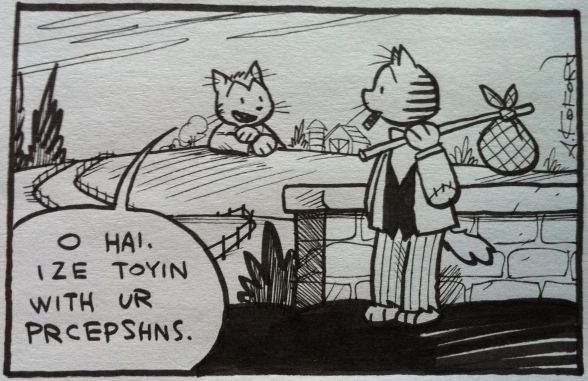Lost Childhood: My Life in a Japanese Prison Camp During World War II: A Memoir, Annelex Hofstra Layson
A vivid story of the time the Dutch-born author spent as a child in a prison camp in Indonesia, one that she hadn’t even shared with her family. I’m glad National Geographic is publishing (and encouraging the telling of in the first place) these stories. Four stars.
Counter Space: Design and the Modern Kitchen, Juliet Kinchin and Aidan O’Connor
I liked the information on the Frankfurt Kitchen, the various futuristic kitchens of the past and the various futuristic kitchen tools. I was less impressed with the assorted paintings and sculptures inspired by the idea of kitchens. I guess I want a kitchen book from a history museum rather than an art museum. Two stars.
Shenzhen: A Travelogue From China, Delisle
It’s better not to read an author’s works in reverse chronological order. No matter how good the author, their writing just gets worse. If you’ve already read Pyongyang and Burma Chronicles, this will just disappoint. If you haven’t read them at all, go ahead– it’s not a bad book. It’s just not as good as the other two. Two stars for the illustration of the author as Tintin in China.
Dissection: Photographs of a Rite of Passage in American Medicine, Warner, Edmonson
This is a collection of photographs of medical students with their dissection class cadaver, a group portrait tradition that started at the beginning of photography and faded away sometime around the 1950s, neatly overlapping the start of willingly donated bodies. With an introduction making the sources of these cadavers clear: often stolen from graves or “donated” by the state if they would otherwise have to be buried at government expense, whether or not there was any family consent. The bodies were very likely to be African American, primarily because that community didn’t have enough political clout to stop the practice. With that introduction, the pictures of the bodies posed in jolly fashion take on an even more gruesome overtone. It’s a very good book that is very hard to look at. Four stars.
Psychiatric Tales: Eleven Graphic Stories About Mental Illness, Darryl Cunningham
More discussion about what different sorts of mental illnesses are like than stories, but told with compassion by an artist with a background in working in UK mental hospitals. His goal is to improve the treatment of vulnerable ill people by family, friends, and community. I was deeply moved by the stories. Four stars.
Packing for Mars: The Curious Science of Life in the Void, Mary Roach (audio)
This book is pretty great, packed with the wonderful new things you never knew you wanted to know that add richness to the overall story of the difficulties of getting people into and comfortable in space. The audio worked really well, though I would keep pausing it to repeat interesting things to my spouse. Four stars.
